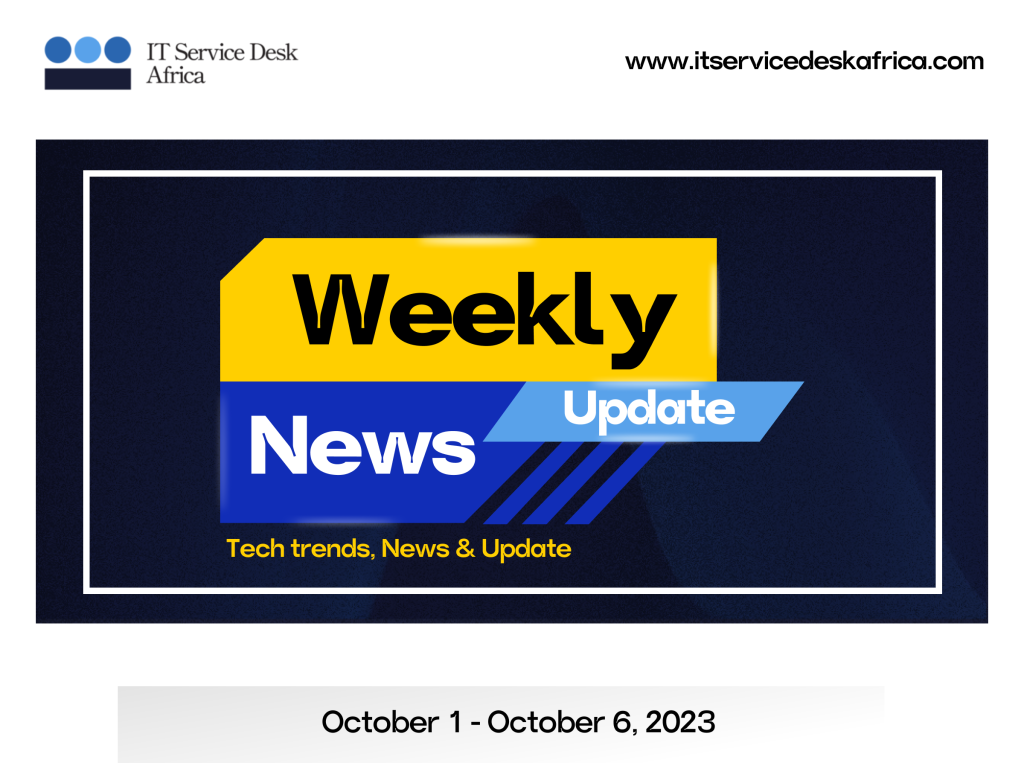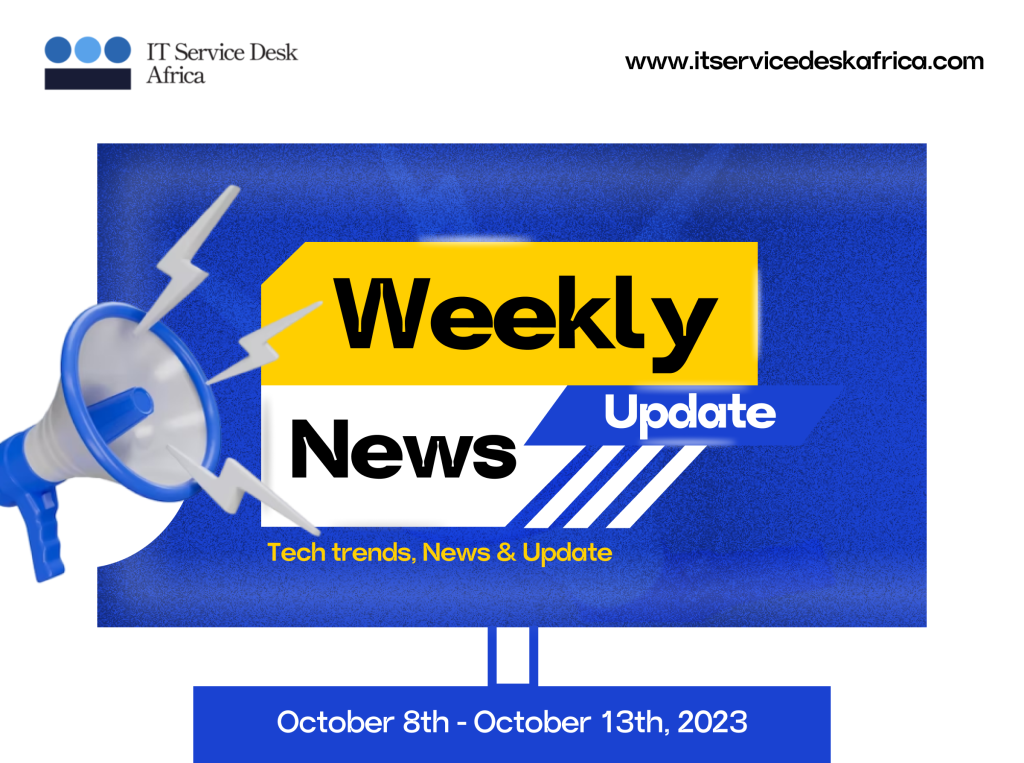1. Google Pours $5.8 Million into Sub-Saharan Africa’s AI Future
In a significant move to bolster Africa’s digital future, Google has announced a $5.8 million investment to accelerate AI skilling initiatives across Sub-Saharan Africa. This substantial investment underscores Google’s commitment to empowering individuals and organizations with the knowledge and tools needed to harness the power of AI.
The funding will be directed towards a variety of initiatives, including:
- AI Training Programs: Google will offer a range of training programs, both online and offline, to equip individuals with the necessary AI skills. These programs will cover a wide range of topics, from machine learning and data science to natural language processing and computer vision.
- Partnerships with Universities and Organizations: Google will collaborate with leading universities and organizations across the region to develop AI curricula and research programs. By partnering with academic institutions, Google aims to foster a strong pipeline of AI talent.
- AI Developer Challenges and Hackathons: Google will organize AI developer challenges and hackathons to encourage innovation and problem-solving skills among young developers. These events will provide participants with an opportunity to work on real-world AI projects and network with industry experts.
By investing in AI education and skills development, Google aims to create a vibrant and skilled AI workforce in Sub-Saharan Africa. This will not only drive economic growth but also help to address some of the continent’s most pressing challenges, such as poverty, disease, and climate change.
This initiative aligns with Google’s broader mission to make technology accessible to everyone. By empowering individuals with AI skills, Google is helping to bridge the digital divide and create a more equitable future.
2. Nvidia’s AI Dominance Propels it to World’s Most Valuable Company
In a historic moment, Nvidia, the tech titan renowned for its graphics processing units (GPUs), has ascended to the coveted position of the world’s most valuable company, briefly surpassing Apple. This remarkable achievement is a testament to the company’s pivotal role in driving the AI revolution.
Nvidia’s ascent to the top is largely attributed to the explosive growth in demand for its high-performance AI chips. These chips, particularly the H100 and A100 series, are essential for powering the development and deployment of AI applications, from natural language processing and computer vision to autonomous vehicles and drug discovery.
As AI continues to reshape industries and redefine the future of technology, Nvidia’s AI chips have become indispensable tools for researchers, developers, and businesses alike. The company’s ability to innovate and deliver cutting-edge solutions has propelled it to the forefront of the AI revolution.
This milestone not only solidifies Nvidia’s position as a technology leader but also underscores the immense potential of AI to drive economic growth and societal progress. As AI continues to advance, it is likely that Nvidia will remain a key player in shaping the future of technology.
Read the tech news update for last week.
3. Google Launches AI for Cybersecurity Program to Bolster Global Security
Google has taken a significant step towards enhancing global cybersecurity by launching its AI for Cybersecurity program as part of the Google for Startup Growth Academy. This initiative aims to support innovators worldwide who are developing cutting-edge AI solutions to combat the ever-evolving cyber threats.
The program offers a comprehensive suite of resources and support to help startups build and scale their cybersecurity solutions. This includes access to Google’s advanced technologies, mentorship from industry experts, and funding opportunities. By providing these resources, Google aims to accelerate the development and deployment of innovative cybersecurity solutions.
The increasing sophistication of cyberattacks poses a serious threat to individuals, businesses, and governments worldwide. AI-powered cybersecurity solutions can help organizations stay ahead of cybercriminals by automating threat detection, response, and prevention.
By investing in AI for cybersecurity, Google is not only strengthening its own security posture but also contributing to the global effort to combat cyber threats. This initiative aligns with Google’s broader mission to make the internet a safer place for everyone.
As the threat landscape continues to evolve, it is crucial to foster innovation and collaboration in the cybersecurity industry. Google’s AI for Cybersecurity program is a step in the right direction, empowering innovators to develop the next generation of cybersecurity solutions.
4. FEC Approves Creative Economy Development Fund and IP Monetization Pilot
The Federal Executive Council (FEC) has taken a significant step towards boosting Nigeria’s creative economy by approving the establishment of the Creative Economy Development Fund (CEDF) and the implementation of the Intellectual Property (IP) Monetization Pilot.
The CEDF is designed to provide financial support to creative industries in Nigeria, including film, music, fashion, and gaming. The fund will be used to finance projects, provide grants, and support the development of creative hubs across the country.
The IP Monetization Pilot, on the other hand, is aimed at helping Nigerian creators monetize their intellectual property. This initiative will provide training, mentorship, and legal support to creators, enabling them to protect and commercialize their work.
These initiatives are expected to drive innovation, create jobs, and contribute to the growth of the Nigerian economy. By supporting the creative industry, the government is recognizing its potential to drive economic development and enhance Nigeria’s global reputation.
5. Starlink Faces Stock-Out in Major Nigerian Cities
Residents of Nigeria’s major cities, Lagos, Abuja, and Port Harcourt, are facing difficulties in acquiring Starlink terminals. The popular satellite internet service provider has reportedly sold out of devices in these areas, leaving potential customers disappointed.
This surge in demand for Starlink’s high-speed internet service can be attributed to several factors, including the increasing need for reliable internet connectivity, especially in remote areas. Additionally, Starlink’s ability to provide high-speed internet without relying on traditional infrastructure has made it an attractive option for many Nigerians.
While the exact reasons for the stock-out are unclear, it is likely due to a combination of factors, such as high demand, supply chain constraints, or production limitations. Starlink has not yet provided an official statement regarding the availability of its products in Nigeria.
As demand for satellite internet continues to grow, it remains to be seen how quickly Starlink can restock its inventory and meet the needs of its customers in Nigeria.
6. Three Nigerian Startups Win N24 Million at TotalEnergies Startupper Challenge 2024
Three promising Nigerian startups have emerged victorious at the TotalEnergies Startupper Challenge 2024, securing a total of N24 million in funding to scale their innovative solutions.
The competition, which aims to identify and support young entrepreneurs with innovative ideas, attracted a diverse range of entries from across the country. The three winning startups were selected based on their potential to address pressing societal challenges and create positive impact.
The winning startups and their innovative solutions include:
The winners of the TotalEnergies Startupper Challenge 2024 in Nigeria are:
- Temitope Yakubu of Interkool by FarmCI won in the Innov’Up category for the best entrepreneur. This startup focuses on providing portable, solar-powered solutions for preserving and transporting farm produce.
- Jacob Abiodun of Coconoto won in the Cycle’Up category for the best circular economy project. Coconoto aims to transform the coconut value chain for a more sustainable future.
- Emmanuel Abah of Waste2Light won in the Power’Up category for the best sustainable and affordable project. Waste2Light produces electricity from wind and hydro sources by converting plastic waste into 3D-printed components.
The N24 million prize money will enable these startups to further develop their products and services, scale their operations, and create jobs. The TotalEnergies Startupper Challenge is a testament to the growing entrepreneurial spirit in Nigeria and the potential of young innovators to drive positive change.




